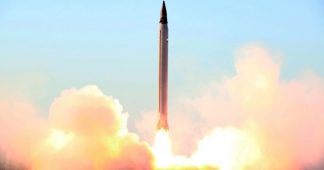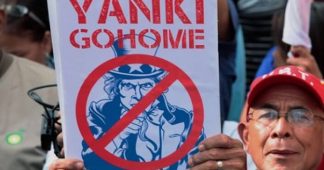By
Economic sanctions are increasingly being used to promote the full range of American foreign policy objectives. Yet all too often sanctions turn out to be little more than expressions of U.S. preferences that hurt American economic interests without changing the target’s behavior for the better. As a rule, sanctions need to be less unilateral and more focused on the problem at hand. Congress and the executive branch need to institute far more rigorous oversight of sanctions, both prior to adopting them and regularly thereafter, to ensure that the expected benefits outweigh likely costs and that sanctions accomplish more than alternative foreign policy tools.
POLICY BRIEF #34
The widespread use of economic sanctions constitutes one of the paradoxes of contemporary American foreign policy. Sanctions are frequently criticized, even derided. At the same time, economic sanctions are fast becoming the policy tool of choice for the United States in the post-cold war world. The United States now maintains economic sanctions against dozens of countries; indeed, sanctions are so popular that they are being introduced by many states and municipalities. What is critical, moreover, is not just the frequency with which economic sanctions are used but their growing importance for U.S. foreign policy.
Sanctions—defined as mostly economic but also political and military penalties introduced to alter political and/or military behavior—are employed by the United States to discourage the proliferation of weapons of mass destruction and ballistic missiles, bolster human rights, end terrorism, thwart drug trafficking, discourage armed aggression, promote market access, protect the environment, and replace governments.
To accomplish foreign policy ends, sanctions take the form of arms embargoes, foreign assistance reductions and cut-offs, export and import limitations, asset freezes, tariff increases, revocation of most favored nation (MFN) trade status, negative votes in international financial institutions, withdrawal of diplomatic relations, visa denials, cancellation of air links, and prohibitions on credit, financing, and investment.
What explains this popularity? Sanctions can offer what appears to be a proportional response to a challenge in which the interests at stake are less than vital. In addition, sanctions are a way to signal official displeasure with a certain behavior. They can serve the purpose of reinforcing a commitment to a behavioral norm, such as respect for human rights or opposition to proliferation. American reluctance to use military force is another motivation. Sanctions provide a visible and less expensive alternative to military intervention and to doing nothing. The greater reach of media is still another explanation. The CNN effect can increase the visibility of problems in another country and stimulate a desire on the part of Americans to respond. The increased strength of single issue constituencies in American politics is also a factor. Small, organized, focused groups—often acting through Congress—can have an impact far beyond their actual strength, especially when no equally focused countervailing force exists.
The Record
A number of conclusions can be drawn from recent American use of economic sanctions for foreign policy purposes:
- Sanctions alone are unlikely to achieve desired results if the aims are large or time is short. Sanctions—even when comprehensive and enjoying almost universal international backing for nearly six months—failed to get Saddam Hussein to withdraw from Kuwait. In the end, it took Operation Desert Storm. Other sanctions have also fallen short. The Iranian regime continues to support terrorism, oppose the Middle East peace process, and press ahead with its nuclear weapons program. Fidel Castro is still in place atop a largely authoritarian political and economic system. India and Pakistan were not deterred from testing nuclear weapons by the threat of draconian penalties. Libya has refused to produce the two individuals accused of the destruction of Pan Am 103. Sanctions could not persuade Haiti’s junta to honor the results of an election. Nor could they dissuade Serbia and others to call off their military aggression. And China continues to export sensitive technologies to selected countries and remains a society where human rights are violated.
Nevertheless, sanctions can on occasion achieve (or help to achieve) various foreign policy goals ranging from the modest to the fairly significant. Sanctions introduced in the aftermath of the Gulf War increased Iraqi compliance with resolutions calling for the complete elimination of its weapons of mass destruction and diminished Iraq’s ability to import weapons. In the former Yugoslavia, sanctions were one factor contributing to Serbia’s decision to accept the Dayton agreement in August 1995. China appears to have shown some restraint in exporting nuclear and ballistic missile parts or technologies.
-
- Unilateral sanctions are rarely effective. In a global economy, unilateral sanctions tend to impose greater costs on American firms than on the target, which can usually find substitute sources of supply and financing.
- Secondary sanctions can make matters worse. Trying to compel others to join a sanctions effort by threatening secondary sanctions against third parties unwilling to sanction the target can cause serious harm to a variety of U.S. foreign policy interests. This is what happened when sanctions were introduced against overseas firms who violated the terms of U.S. legislation affecting Cuba, Iran, and Libya. This threat may have had some deterrent effect on the willingness of certain individuals to enter into proscribed business activities, but at the price of increasing anti-American sentiment, stimulating challenges within the World Trade Organization, and drawing attention away from the provocative behavior of the target governments.
- Sanctions are blunt instruments that often produce unintended and undesirable consequences. Sanctions increased the economic distress on Haiti, triggering a dangerous and expensive exodus of people from Haiti to the United States. In the former Yugoslavia, the arms embargo weakened the Bosnian (Muslim) side given the fact that Bosnia’s Serbs and Croats had larger stores of military supplies and greater access to additional supplies from outside sources. Military sanctions against Pakistan increased its reliance on a nuclear option, both because the sanctions cut off Islamabad’s access to U.S. weaponry and by weakening Pakistani confidence in American reliability.More generally, sanctions can have the perverse effect of bolstering authoritarian, statist societies. By creating scarcity, they enable governments to better control distribution of goods. The danger is both moral, in that innocents are affected, as well as practical, in that sanctions that harm the population at large can bring about undesired effects that include bolstering the regime, triggering large scale emigration, and retarding the emergence of a middle class and civil society. Smart or designer sanctions are at best a partial solution. Gathering the necessary knowledge about assets, and then moving quickly enough to freeze them, can often prove impossible.
- Sanctions can be expensive for American business, farmers, and workers. There is a tendency to overlook or underestimate the direct cost of sanctions, perhaps because their costs do not show up in U.S. government budget tables. Sanctions do, however, affect the economy by reducing revenues of U.S. companies and individuals. Moreover, even this cost is difficult to measure because it needs to reflect not simply lost sales but also forfeited opportunities. Sanctions cost U.S. companies billions of dollars a year in lost sales and returns on investment—and cost many thousands of workers their jobs.
- Sanctions tend to be easier to introduce than to lift. It is almost always more difficult to change the status quo than to continue with it. It is often difficult or impossible to build a consensus for rescinding a sanction, even if there has been some progress on the matter of concern, if the sanction has been shown to be feckless or counterproductive, or if other interests can be shown to suffer as a result. This is likely to become the case with India and Pakistan, where U.S. sanctions introduced in the wake of the May 1998 nuclear tests will frustrate attempts to influence their behavior in this or other areas. The Bosnia case involves a powerful example of the danger of locking in sanctions, as the inability to amend or lift UN sanctions that blocked military support to all protagonists in the Bosnian war worked to the disadvantage of the weaker Bosnian side.
- Sanctions fatigue tends to settle in over time and international compliance tends to diminish. Inevitably, the issue that led to sanctions being introduced loses its emotional impact. Concerns over the humanitarian impact of sanctions also weaken resolve. At the same time, the target country has time to adjust. Working around sanctions, import substitution, and any improvement of living standards due to adaptation all make sanctions bearable. All of these factors have eroded the impact of sanctions against Iraq, Libya, and Cuba.
A New Approach
The conclusion is clear: All too often, the economic, humanitarian, and foreign policy costs of U.S. sanctions far outweigh any benefits. What, then, could and should be done?
- Here are some guidelines to inform U.S. policy:
- Economic sanctions are a serious instrument of foreign policy and should be employed only after consideration no less rigorous than what would precede military intervention. The likely benefits of a particular sanction to U.S. foreign policy should be greater than the anticipated costs to the U.S. government and the American economy. Moreover, the relationship between how the sanction is likely to affect U.S. interests should compare favorably to the likely consequences of all other policies, including military intervention, covert action, public and private diplomacy, offering incentives, or doing nothing.A corollary to the above is no less important: Broad sanctions should not be used as an expressive tool in a manner not justified by a careful accounting of likely costs and benefits. Again, sanctions are serious business. Sanctions are a form of intervention. Depending upon how they are used, they can cause great damage to innocent people—as well as to American business, workers, and U.S. foreign policy interests. In addition, sanctions can reduce U.S. leverage. Elimination of education, training, and aid for foreign militaries, mandated by Congress to express displeasure with Pakistan and Indonesia, reduced U.S. influence with a powerful constituency in both those countries. Foreign policy is not therapy, and its purpose is not to feel good but to do good. The same holds for sanctions.
- Multilateral support for economic sanctions should normally constitute a prerequisite for their use by the United States. Such support need not be simultaneous, but it should be all but certain and likely to follow with little delay. Unilateral sanctions should be avoided except in those circumstances in which the United States is in a unique situation to derive leverage based on the economic relationship with the target. This is not so much a normative assertion as a pragmatic one, based on the overwhelming evidence that unilateral sanctions achieve little.
- Secondary sanctions are not a desirable means of bringing about multilateral support for sanctions. Instituting sanctions against those who do not comply with the sanctions at issue is an admission of a diplomatic failure to persuade. It is also an expensive response. The costs to U.S. foreign policy, including the state of relations with major partners and U.S. efforts to build an effective WTO, almost always outweigh the potential benefits of coercing friends to join sanctions.
- Economic sanctions should focus on those responsible for the offending behavior or on penalizing countries in the realm that stimulated sanctions in the first place. A focused response helps avoid jeopardizing other interests and the entire bilateral relationship with the target over one area of disagreement; causes less collateral damage to innocents; and makes it less difficult to garner multinational support. Sanctions designed to stem the proliferation of weapons of mass destruction are a prime example. Where there are transgressions, the United States should direct any sanction against the foreign firm involved or, if the government is to blame, should cut off technological cooperation or trade in this area. A corollary is that political sanctions should be used sparingly if at all. We should resist the temptation to break diplomatic relations or cancel high-level meetings. Such interactions provide opportunities for U.S. officials to make their case to governments and publics and help the United States as much or more as the targeted party.
- Sanctions should not be used to hold major or complex bilateral relationships hostage to a single issue or set of concerns. This is especially the case with a country such as China, where the United States has to balance interests that include maintaining stability in South Asia and on the Korean Peninsula, discouraging any support for the weapons of mass destruction or ballistic missile programs of rogue states, managing the Taiwan-China situation, and promoting trade, market reform, and human rights. A nearly identical argument could be made about the wisdom of applying broad sanctions against Russia or India because of their transgressions in one realm. The alternative to broad sanctions in such instances is either to adopt narrow sanctions that are germane to the issue at hand or to turn to other policy tools.
- Humanitarian exceptions should be included as part of any comprehensive sanctions. Innocents should not be made to suffer any more than is absolutely necessary. Including an exception that allows a target to import food and medicine should also make it easier to bring about domestic and international support.
- Policymakers should prepare and send to Congress a policy statement before or soon after a sanction is put in place. Such statements should be clear as to the purpose of the sanction; the required legal and/or political authority; the expected impact on the target, including possible retaliatory steps; the probable humanitarian consequences and steps to minimize them; the expected costs to the United States; prospects for enforcing the sanction; the degree of international support or opposition that can be anticipated; and an exit strategy, i.e., the criteria for lifting the sanction. (To cite just one example, the 1994 legislation that led to sanctions in 1998 against India lacks any road map for how the sanctions might be reduced or lifted.) In addition, policymakers should explain why a particular sanction was selected as opposed to other sanctions or other policy tools.
- All sanctions embedded in legislation should provide for presidential discretion in the form of a waiver authority. Discretion would allow the President to suspend or terminate a sanction if he judged it was in the interests of national security to do so. Such latitude is needed if relationships are not to become hostage to one interest and if the executive is to have the flexibility needed to explore whether the introduction of limited incentives can bring about a desired policy end. Waivers (exercised in May 1998) in laws calling for secondary sanctions against non-American firms doing business with Iran, Libya, and Cuba had a salutary effect on U.S. foreign policy, although they did nothing for U.S. firms still precluded from operating in these countries by the primary sanctions. The absence of waivers is likely to haunt U.S. policy toward India and Pakistan. Sanctions will make it more difficult to influence future Indian and Pakistani decisions involving the deployment or even use of nuclear weapons—and could contribute to instability inside Pakistan, thereby eroding control over these weapons.
- The federal government should challenge the right of states and municipalities to institute economic sanctions against companies and individuals operating in their jurisdiction. The Constitution may not settle the struggle between the executive and legislative branches over the foreign affairs power, but it limits the struggle to the federal branch. Those states and municipalities that are adopting selective purchasing laws that prohibit public agencies from purchasing goods and services from companies doing business in or with particular target countries are overstepping their bounds. The Clinton administration should join forces with those representatives of the business community that have filed a suit to enjoin Massachusetts from enforcing its law that would effectively ban the state from doing business with companies active in Myanmar.
- U.S. intelligence capabilities must be reoriented to meet the demands created by sanctions policy. The ability to design and implement smart sanctions will require extraordinary collection requirements. But the demand for better intelligence support of sanctions policy also involves analysis. A unit should be established to prepare predictions of the likely impact of sanctions on the target state and others. Analysts could help identify particular vulnerabilities of target states or leaders, examine likely reactions by the target and third parties, and monitor the impact of a sanction over time.
- Any sanction should be the subject of an annual impact statement. Such a statement, to be prepared by the executive branch and submitted in unclassified form to Congress, should provide far more in the way of information and analysis than the pro forma documents written to justify many current sanctions. It should include an assessment of the extent to which the sanction has served its purposes; the economic, political and/or military impact on the target; any humanitarian effect; the reactions of the target country; the degree of international compliance and non-compliance; and the financial costs to U.S. businesses, workers and the U.S. government.
Thinking Outside the (Tool) Box
There is no quick fix to the sanctions problem. Passing legislation along the lines of the proposed Enhancement of Trade, Security, and Human Rights Sanctions Reform Act would introduce greater scrutiny of sanctions before and after their introduction. Greater executive activism and discretion would also help. The Clinton administration can be faulted for its failure to veto laws calling for secondary sanctions and for its haste in implementing sanctions triggered by India’s and Pakistan’s nuclear tests.
This said, the challenge goes beyond improving sanctions, something that will tend to make them narrower and less unilateral. The more fundamental question is one of the selection of the most appropriate foreign policy tool to deal with a particular challenge. Sanctions of any sort must be weighed against the likely costs and benefits of military action, covert programs, and both public and private diplomacy.
Sometimes it will be better to use military force. This was the lesson of Desert Storm and Bosnia—and may yet prove to be the lesson of Kosovo. Cuba is also worth considering in this context. Rather than tighten sanctions (which increased the misery of the Cuban people) and go along with Congress’s introduction of secondary sanctions against U.S. allies, the Clinton Administration might have been wiser to launch a cruise missile salvo to take out the MIGs that shot down the unarmed plane flown by Cuban exiles. More broadly, it can be argued that American dollars, tourists, and ideas constitute a greater threat to Fidel Castro and communism in Cuba than the embargo.
In other instances, focused sanctions appear attractive. A more appropriate response to India’s and Pakistan’s nuclear tests would have been export controls designed to slow missile and nuclear bomb development and deployment. With Haiti, narrow sanctions aimed at the illegitimate leadership would not have triggered the human exodus that pressured the Administration into an armed intervention that could have proved extremely costly. Differences with China and Russia over their technology and weapons exports would best be dealt with by narrow sanctions. This said, sanctions will not be able to carry the full burden on non-proliferation policy, and policy tools ranging from preventive attacks on rogue state facilities to more robust defenses will need to be considered.
The principal alternative to economic sanctions, however, is best described as conditional engagement, i.e., a mix of narrow sanctions and political and economic interactions that are limited and made conditional on specified behavioral changes. A package of incentives tied to specific actions has helped manage North Korea’s nuclear ambitions. It might also prove effective with Iran under its new leadership and help India and Pakistan manage their nuclear standoff.
What these examples make clear is that there is no tool that is always preferable to sanctions, any more than sanctions themselves offer a universal answer. A one-size-fits-all approach to foreign policy is bound to fail. But the trend is no less clear. While there will be those instances in which sanctions can help, either alone or more likely in conjunction with other tools, recent history strongly suggests that the potential of sanctions to contribute to American foreign policy will be modest—and that asking more of them than that promises to be counterproductive.
Also read
Immoral, ineffective and counterproductive











